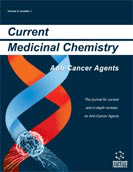Abstract
Sesquiterpene lactones (SLs) are the active constituents of a variety of medicinal plants used in traditional medicine for the treatment of inflammatory diseases. In recent years, the anti-cancer property of various SLs has attracted a great deal of interest and extensive research work has been carried out to characterize the anti-cancer activity, the molecular mechanisms, and the potential chemopreventive and chemotherapeutic application of SLs. In this review, we attempt to summarize the current knowledge of the anti-cancer properties of SLs by focusing on the following important issues. First, we discuss the structure-activity relationship of SLs. All SLs contain a common functional structure, an α- methylene-γ-lactone group, and this important chemical characteristic means that the thiol-reactivity of SLs is an underlying mechanism responsible for their bioactivities. Second, we assess the experimental evidence for the anti-cancer function of SLs obtained from both in vitro cell culture and in vivo animal models. Various SLs have been demonstrated to execute their anti-cancer capability via inhibition of inflammatory responses, prevention of metastasis and induction of apoptosis. Thirdly, we outline the molecular mechanisms involved in the anti-cancer activity of SLs, in particular, the SLthiols reaction, the effect of SLs on cell signaling pathways such as nuclear transcription factor-kappaB (NF-κB) and mitogen-activated protein kinases (MAPK). Finally, we recapitulate some important SLs with regards to their anti-cancer activities and their potential in anti-cancer drug development. Taken together, many SLs are emerging as promising anticancer agents with potential applications in both cancer chemotherapy and chemoprevention.
Keywords: sesquiterpene lactones, anti-cancer, apoptosis, thiols, anti-inflammatory, bf-kb
 16
16

















